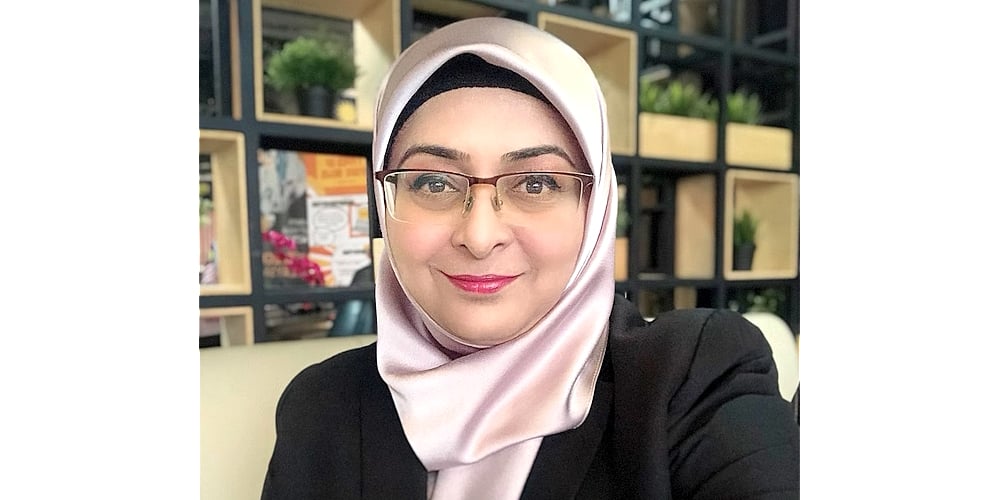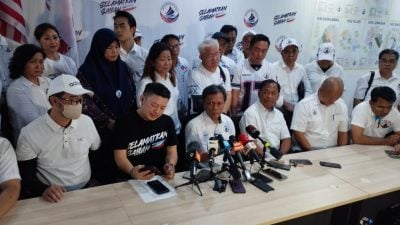 National unity is the main pillar of fostering stability in the country, enabling prosperity and rapid development for the nation.
National unity is the main pillar of fostering stability in the country, enabling prosperity and rapid development for the nation.
For many decades, Malaysians have been living in peace and harmony with multiracial ethnics in the country.
The key factors in maintaining national unity are respecting one another, and understanding and embracing our differences.
Differences make Malaysians unique because they still live in peace and harmony.
Facing different eras since independence demands various approaches to fostering national unity where the challenges are different.
Technology evolves, requiring the people to adapt themselves to the rapid changes of the digital era.
Strengthening national unity in the digital era requires a different approach from many decades ago.
Our current Madani government plays a significant role in maintaining national unity to ensure that social justice, moral values and inclusiveness are upheld for the nation’s prosperity.
Maintaining unity in the digital era is a combination of opportunities and challenges.
The digital era has changed the way people communicate with one another and gain information.
The media shapes people’s opinions and educates them to react to specific issues.
Digital media is mushrooming, with many options for people to gain information and exchange opinions most effectively and conveniently.
New media has dominated the medium for information-seeking among Malaysians through various platforms such as independent news portals and social media.
It is undeniable that digital media is becoming an important tool for national unity through messages highlighted in the medium.
Still, at the same time, it can also be dangerous when used in the wrong way, because it can also be a double-edged sword.
The digital era has revolutionised the communication process, where people from any part of the world can be connected instantly.
Online media, especially social media, and various apps have bridged the gaps between different ethnicities and facilitated mediums for better interaction.
All these processes will help us understand the other races in the country better.
Social media usage allows people to share interests and goals, connect, build relationships, and exchange ideas with like-minded people.
The Madani government is encouraging the exchange of ideas through a medium for people to freely communicate by optimising the digital medium.
Malaysians can freely share their opinions on any platform to exchange ideas and opinions by utilising two-way communication in the new media.
People have the freedom to talk about anything they want to express, and at the same time, they can get opinions from others.
They will be able to share our cultural diversity and uniqueness, arouse the spirit of nationalism, and debate various issues to strengthen national unity.
Digital media upholds the transformation of democratic practice by providing new opportunities for the nation to engage more in the communication process, which is limited through traditional media.
Eventually, it can foster national unity by offering a variety of online platforms for the diverse voices of the people to be heard and for better engagement.
National unity can also be gained through digital literacy. When people have some sense of digital literacy, they will be able to identify biases in the content they read online and have the capacity to critically evaluate the information they have received.
Citizens with media literacy will be able to make informed decisions, analyse them, and show maturity while engaging online to discuss specific issues.
They will also be able to identify manipulation and effectively engage constructively.
So, the usage of digital media should be supported by media literacy due to the potential of fake news, which can tarnish the unity of multiracial people in our country.
Malaysians should be able to differentiate between real and fake news to get the actual information.
Research indicates that only some people can differentiate between fake and real news. The dissemination of fake news, especially on issues related to race and religion, may spark anger and tension in our multiracial society.
Sometimes, highlighting specific issues in the new medium can attract and encourage hate speech.
When an issue goes viral and draws negative reactions from people, some may play with sensitive issues, triggering fury among those who respond to that topic.
Usually, political issues are also one of the main segments to spread hate speeches on digital media.
Those activities are dangerous and must be avoided because they may create heated arguments and debates in the media, jeopardising the unity of people with different political standing.
To tackle all those issues, it is very important for the government to encourage media literacy to digest the information effectively.
The government should from time to time promote any initiative that encourages the people to use new media responsibly while monitoring hate speeches in the medium, which the Ministry of Information can do to preserve national unity.
The media should play an important role in helping the government handle this issue by producing more public service announcements (PSA) related to fake news, the way to identify information and to analyse information to ascertain the genuineness of the news messages.
Another way to enhance unity in the digital era is to bridge the digital divide among the people in this country.
The government should prioritise the digital divide to ensure all the people in Malaysia have access to the internet, digital information and knowledge.
This is crucial to ensure that no people will be left behind in the country’s development.
The digital media will empower people to participate actively in the generation of knowledge, and to be equipped with media literacy to contribute towards national development.
Living in the digital era makes citizens more connected and better informed than many decades ago, when information could only be gained through conventional media such as newspapers, television and radio.
However, in the digital era today, there is more space for transparency and inclusivity, which are very important to gaining trust from the people.
While the digital era can unite people, the government should make more effort to bridge the digital divide to ensure everyone has equal access to technology to remain productive and uphold digital literacy to foster national unity.
(Dr Mumtaz Aini Alivi is Senior Lecturer at Department of Media and Communication Studies, Universiti Malaya.)
ADVERTISEMENT
ADVERTISEMENT


































